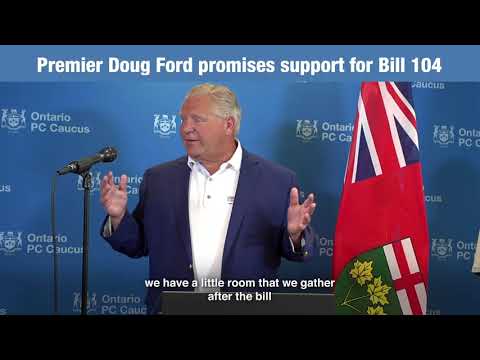Analyzing Doug Ford’s Leadership and Policies in Ontario

Introduction
Doug Ford, the Premier of Ontario since June 2018, has become a pivotal figure in Canadian politics. His tenure has shaken up the political landscape of Ontario, impacting healthcare, education, and the economy. Understanding Ford’s policies and their implications is crucial for Ontarians, especially as the provincial elections approach in 2026.
Current Policies and Initiatives
Ford’s administration has focused significantly on economic recovery post-COVID-19. In the last budget, the government announced a $14 billion investment in healthcare over three years, aimed at expanding hospital capacity and reducing wait times. Furthermore, Ford has emphasized the importance of increasing the number of long-term care homes and improving their conditions, directly addressing criticism from the pandemic’s early days.
Moreover, Ford’s government has pushed forward with the controversial highway expansions, particularly the Highway 413 project, which has garnered both support and criticism. Proponents argue that these expansions will reduce congestion and promote economic growth, while opponents express concern about environmental impacts and urban sprawl.
Education and Public Services
In education, Ford has faced backlash for cuts to public school funding, leading to teacher strikes in some regions. However, the recent budget proposes an increase in education funding, focusing on mental health resources for students and the recruitment of additional educators. These steps indicate a shift in response to public concerns and the acknowledgment of the challenges within the educational system during the pandemic.
Public Reaction and Criticism
Public reception of Ford’s policies has been mixed. While some citizens appreciate the economic focus and infrastructure projects, others criticize his government for perceived mismanagement and lack of transparency. Ongoing debates about climate policy and the Ford government’s environmental record continue to draw scrutiny. Environmental groups argue that his policies undermine Ontario’s long-term sustainability goals.
Conclusion
As Doug Ford continues to navigate his leadership and the various challenges faced by Ontario, it remains essential for constituents to remain informed about his policies and their potential implications. The coming years will be crucial as Ford prepares for the next election, with his governance directly influencing the province’s direction on healthcare, education, and environmental issues. Observers indicate that how he addresses these challenges will ultimately shape not only his legacy but also the future of Ontario as a whole.









